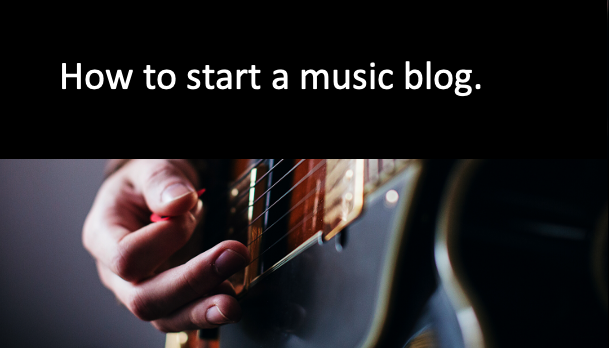If you are a musician or you know someone who knows how to sing and write good music, you might be willing to start a music blog.Knowing how to start a music blog will help you achieve your dream and create your brand awareness out there.Just follow these simple steps.
Step 1: Decide on a Web Host.
On your to-do list is picking a web host that you will require reliable hosting and support. The key characteristics of a good host are:
- Readily available assistance
- Easy and quick setup
- Simple to operate
- Option for a safe website
If you’re a novice, Siteground is the greatest option because they have excellent initial offers, responsive customer support, and dependability. The other choice is Bluehost, which is a great choice and has many features and possibilities.
Overall, getting the right host is the foundation of your website
Step 2: Define your music Niche
This is common advice, so if you’ve read other articles about beginning a blog, you’ve probably noticed a lot of mentions of it. A niche is essential to the success of a music blog.
Just what does that imply? You must therefore concentrate on a particular area of the market. The majority of the time, if not always, your postings should be about your niche.
For instance, unless they enjoy jazz, not everyone is going to be interested in your jazz music blog.
Step 3: Be Consistent and Creative
Being consistent entails making sure to update your website’s material regularly. Being consistent is important for blogging and creating viral content.
Writing an article or a music-related review on your area of expertise at least three times every week, for instance. Daily posts or reviews are written by some bloggers. By being consistent, you make it easier for readers to anticipate your future posts.
A successful music blog also requires creativity while remaining current and engaging. Your blog entries need to be interesting enough to keep readers interested. Be professional and produce unique material for your area.
Step 4: Stop Doing What Doesn’t Work
Be prepared to discard ideas that aren’t working and make adjustments as you go. Your time is valuable; don’t waste it on unproductive content. Be open to experimenting with new tactics and developing fresh, engaging content. This can keep your site from becoming boring.
Step 5: Get Interviews from Experts
A useful tool for your blog is an interview. You have the option of posting a written review, a video (either via Zoom or in person), or both on your website. Interviews can be conducted with performers, musicians, radio hosts, and other people who are thought to be authorities in the music business.
Step 6: Create Your Own Writing Team
You will require additional content as your music blog expands. You can reduce your stress by assembling a fantastic writing staff. More authors can offer diverse viewpoints on subjects about your musical area. It may add more personality, make it stand out, and keep your site from being boring.
Step 7: Consult blogs and books about blogging
The vast amount of information on music blogging that is available online frequently leads to confusion. For the best results while creating a music blog, seek out precise information. One book I can suggest is “How to Build a Music Blog,” which contains advice on things like how to choose the best niche and create a visually appealing website.
Step 8: Establish your Goals
It’s crucial to know what your goals are for your music blog before you start one. You might set a variety of specific objectives for yourself as a music blogger. These include generating income, attracting attention to your music, and securing concerts in the sector.
Step 9: Decide on a Blog Name
The greatest blog names are brief and to the point, and they often have six to eighteen characters. Site names are far more memorable when they also contain words that are directly related to the subject matter of the blog.
Step 10: Create Content for your blog
The majority of music blogs out there include these three pages: your home page, about page, and contact page. You might also wish to include a page for your online store and one for your music videos. Make your blog material manageable through your blog by developing it.
These can include everything from music reviews, playlists, artist interviews, and instructional material to event schedules and music videos.
Step 11: Promote and Market your Blog
By advertising your music blog through social media marketing, you may quickly grow your readership and establish yourself as an influencer. A music blog can be promoted on several sites, including Instagram, Twitter, YouTube, Facebook, TikTok, and others. Managing social media accounts can take time, so concentrate on just one or two for the time being.
Step 12: Recruit guest bloggers
It can be stressful and time-consuming to create high-quality blog content. If you decide to ask others to write as guest bloggers on your website, you may post more content quickly. Without having to provide all of the content yourself, using guest writers is a terrific approach to establishing a successful music blog.

